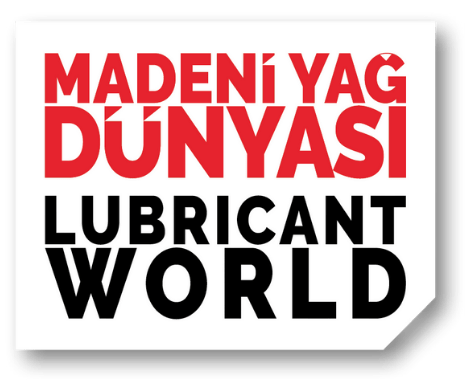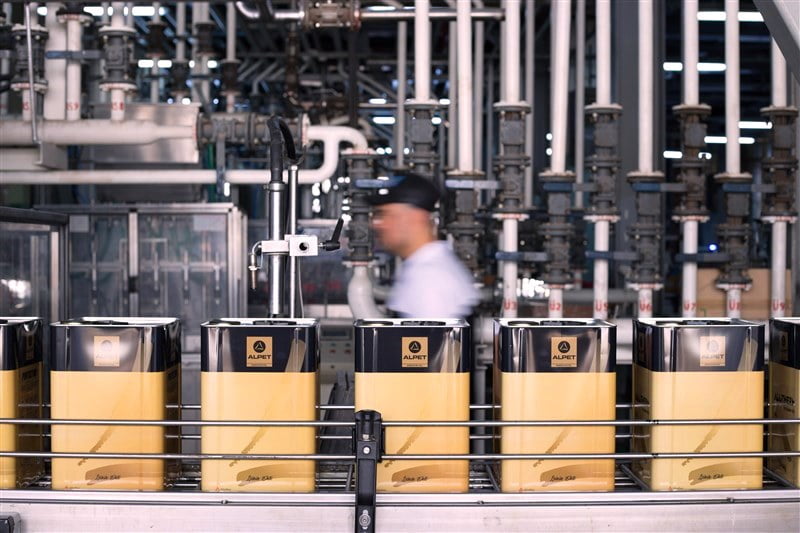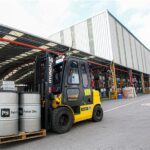Alpet Lubricants develops special projects and conducts product studies for the iron and steel industry, which is among the most important industries of Turkey. The company aims to make a difference in the sector with its calcium sulfonate complex greases. Atilla Başulaş, Lubricants Technical Support Manager, shared detailed information about the company’s grease production and R&D activities.
We’d love to get to know you. Can you tell us about yourself?
I graduated from Boğaziçi University, Department of Chemistry. I started my career in 2002 with technical sales in the metal processing products sector. After working as regional technical manager in several companies, I became a part of Alpet Lubricants as Business Development and Technical Affairs Manager in December 2016. I am currently taking office as Technical Support Manager for Lubricants. With the support of our R&D and Quality Control Laboratories, we as the entire department believe that it is very important to increase our process knowledge by visiting our customers and to develop products that are specific to their processes and that will meet their needs. When we adopt this manner of work, it is much faster to detect the problem and develop solutions through R&D.
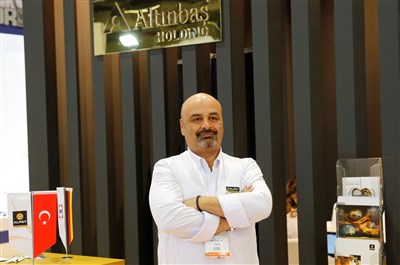
In your opinion, what are the features that make the iron and steel industry different from other industries?
The iron and steel industry has a significant place for both our country and lubricant manufacturers. The contribution of this industry to the national economy is very high and Turkey hosts some of the largest manufacturers of the world. The manufacturers have technical staff consisting of operators and engineers with a high level of education and experience. Many steelmakers have lubricant quality control laboratories equipped with advanced technology in their own premises. Therefore, they can check the oil both in the working environment and in laboratory tests and monitor the cost and performance of lubricants. They closely follow the latest developments in lubricants sector and can identify the needs in their processes and can make pinpoint requests. This awareness and accurate information transfer increases the variety and quality of the oils used in the iron and steel industry. In this industry, many different kinds of products are used, such as polyurea greases, barium complex greases, calcium sulfonate complex greases, water and ester based fire resistant hydraulic oils, circulating oils, steel mold release oils, hydraulic fluids, skid oils, etc. One of our primary goals is to develop the most accurate solutions for the needs of the iron and steel industry by increasing our knowledge about the processes in different companies.
How do you carry out the R&D activities related to greases?
The Technology Center was established in 2009 with a high investment cost and it is further improved with regular investments in parallel with the developments in the world. R&D and Quality Control departments carry out tests by a competent team and more than 100 international, national and internal methods, over 50 of which are within the scope of Türkak Accreditation. There may be cases where standard test methods do not fully meet the expectations of the field. In such cases, R&D and Quality Control departments undergo revisions in our own internal methods or standard methods and put our products to different tests. For example, before we put our calcium sulfonate complex greases on the market, we conducted several hours of tests to understand the situations our customers might experience during use. In many iron and steel companies, we observed the properties of our calcium sulfonate complex greases such as surface adhesion, water and oxidation resistance, soot formation and stability. We conducted studies with R&D to make changes in the formulations of our products using the information we obtained through field tests. Here, R&D is a must both for the formulation and the mode of production. Greases are formed by chemical reactions, thus the mode of production is as important as the formulation to create the desired product. I also want to point out that being able to carry out all this process within the company and to develop products that meet the needs of iron and steel manufacturers is a good source of motivation for us and our R&D employees. Technical teams actively working in the field provide input for R&D studies and support the development of products to meet the needs of the sector.
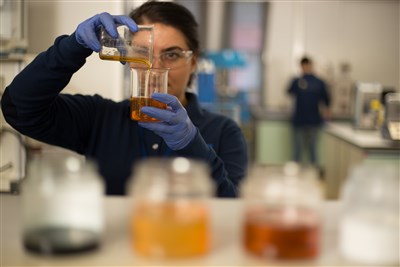
How do you produce grease as Alpet Lubricants, how did you start?
After it was decided to produce our own grease portfolio, which was procured from foreign manufacturers until 2014, all related units set to work. Detailed market research was conducted to determine the products and needs. We participated in many international conferences and workshops organized by ELGI (European Lubricating Grease Institute). We met with many experts and companies experienced in this area, and attended trainings in many countries such as Germany, UK and India. We reviewed the literature and practices around the world through published articles. Prior to large-scale industrial manufacturing, we made productions in pilot reactors. We went through many phases such as reaction efficiency, suitability of raw materials to the formulation, cooling-heating rates, effects of different performance additives, and reliability of quality control tests. The products were sent to different laboratories for testing both in Turkey and abroad. Our company has been working on greases for more than 5 years. In our facility, we have been able to produce all the greases that will not threaten our customer’s health within the scope of the REACH regulation. As a national company, we attach importance to quality and maximum benefit that we can offer to our customers with our products and services by trying to raise our customers’ awareness.
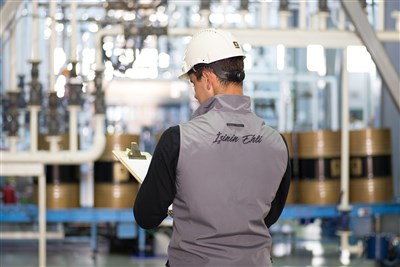
What is the importance of calcium sulfonate complex greases and how does it differ from other greases?
Calcium sulfonate complex grease, which has been used in the United States since the 1980s, is a type of grease that has just started to be used in our country. We are working on raising the awareness of our customers about this and developing products. Some part of calcium sulfonate greases is being imported, but we are able to produce these products here and we are happy to provide these imported products to the Turkish market as a national company.
Calcium sulfonate grease is a type of grease that maintains its protection efficiency up to 200 °C and physically passes from the semi-fluid phase to liquid phase over 300 °C, although its low temperature features vary according to the base oil type. Sometimes the drop point of a product can be interpreted as its maximum operating temperature, and this suggests that there may be problems during operation. When used above the recommended operating temperature, lubrication feature of grease minimizes and even the oil film deteriorates and wears. Subsequent overheating on the surface caused by insufficient lubrication accelerates the oxidation and heavy carbon residues which we call soot formation remain in the system.
Grease preference should be evaluated in many parameters. External conditions such as internal-external diameter, rotation speed of the bearing, maximum temperature level at which the bearings reach, exposure to water and moisture are very important. Unless greases, which can operate at very high temperatures and are suitable for sudden temperature increases, are used in steel mills, soot formation may occur in the grease. In rolling mills, the water used to cool the bearings will cause the grease to dissolve and drain away, depending on the strength of the seals in the system.
Calcium sulfonate complex greases and calcium sulfonate greases are technically similar. However, complex greases go through various acid reactions. As calcium sulfonate greases have higher sulfonate content than complex types, ash content which forms as a result of burning is higher. In this respect, calcium sulfonate complex grease technology will provide less ash residue. Technically, calcium sulfonate greases show better water resistance and pumpability than calcium sulfonate complex greases, but with today’s technology, water resistance can be brought to similar levels with various polymer additions. As it is an adjustable condition, water resistance and adhesion properties of each manufacturer’s product are not the same. For the determination of these values, according to ASTM D 4049 test method, “Water Sweep” results are an important method to observe the water resistance level of grease.
Calcium sulfonate complex greases can be used in systems where water, moisture, temperature (within the recommended limits), surface adhesion are important and where high load resistance is required. Organic greases that do not allow ash formation are recommended for steel mills. They can be preferred in bearings in rolling mills, construction machinery buckets working in water, certain parts of ships under water, palletizing machines in feed factories, low temperature compressor conveyor bearings, vibrating construction machines, marble quarries, and stone crushing machines.
According to the data of many of our customers, it has been observed that the use of calcium sulfonate complex greases reduces consumption compared to lithium complex grease at the NLGI 1.5 level. This data was evaluated on the basis of extending pumping periods, taking into account the consumption quantities.
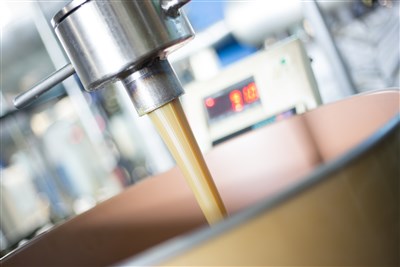
Why Alpet Industrial?
Alpet Lubricants, which is one of the energy group companies of Altınbaş Holding, is an organization operating in the field of lubricants business. Since its establishment, it has been producing lubricants and complementary chemicals that meet the needs of the automotive sector in particular. In 2016, the brand ‘Alpet Industrial’ was established under the roof of Alpet Lubricants. It is positioned as a private brand with a portfolio consisting of products that work on the basis of components rather than additive packages, and that specifically address the industry.
As Alpet Industrial -a national company with advanced technological opportunities- we set off with the aim of contributing to the production increase that is essential for Turkey’s economic development. Underlining that our focus is on the industry, we are working to facilitate the work of manufacturers and to support our customers with an authorized technical team.
What are the trends and the most preferred tests in grease analyses?
We think that being able to conduct successful works in the R&D department depends on correct needs determination, a good analysis and a good project design in every respect. You must have the technological competence to identify the product properties that the customers get good results, to produce this product within your own premises and even to further improve it. It is also very important that the products you produce have a standardization and stability. We carry out intensive and rigorous tests in the process of delivering the products with the same formula and same quality to our customers. Thanks to our significant investment in the field of greases, we are able to perform almost all tests in our own laboratory, without depending on other sources. We are also at a different stage in terms of export of analysis services. We conduct tests for different European countries within the scope of accreditation. We get offers especially for greases analyses and projects from countries such as Greece, Germany, Romania and Belgium, and we provide reports. At home, many end users prefer our lab to find an answer to their questions about greases.
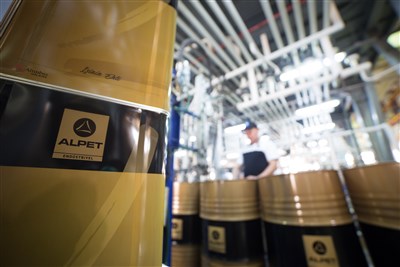
Will you have any other projects for the iron and steel industry?
We are always in contact with the authorities at different levels from the iron and steel industry. First of all, we evaluate the status of existing products and continuously work for the development of the products when needed. In particular, we continue our projects that will decrease consumption and has high added value. We have achieved to decrease consumption and bring the performance level to the expected level.
In addition to calcium sulfonate greases, we have special projects on special reduction oils with increased LWI values (Load Wear Index) and fire resistant hydraulic oils. We continue our studies not only for the iron and steel industry but also for other industries. One of our most recent projects is food-compatible greases, in which we have made considerable progress.
